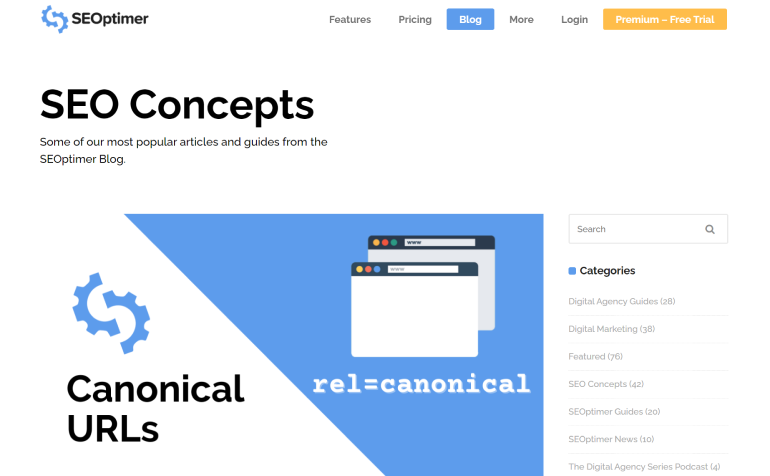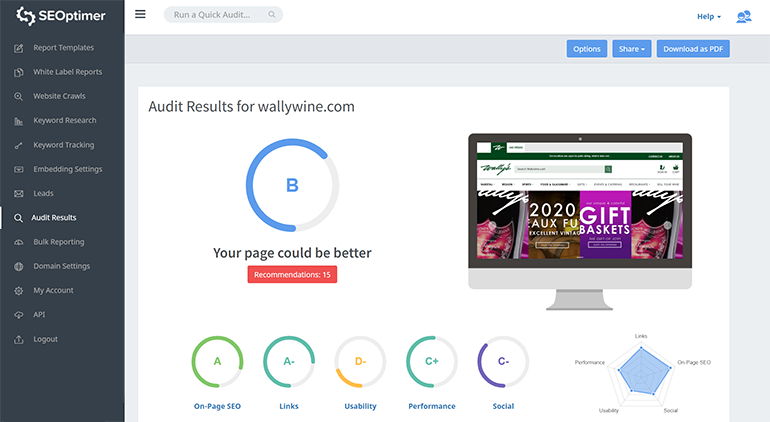
This article is related to the comprehensive guide we wrote about SEO Salaries. In that guide, we combined data from multiple sources to determine the average SEO Salary of US$86,636 per year in the United States.
In this article, we'll delve deeper into the SEO Analyst role. There are many types of SEO roles in a digital agency (and on the client-side) but an SEO Analyst is generally where most SEO professionals start their careers. In other words, it's usually an entry-level role or junior role in most organizations.
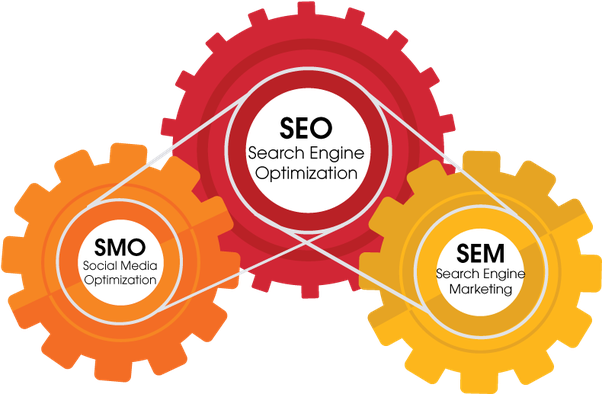
In reality, many digital agencies include the function of an SEO Analyst within a broader role, such as a Digital Analyst or a Data Analyst. While these roles are broader and potentially cross several digital disciplines (eg: SEM/PPC, Social Media, CRO, etc) this article will focus primarily on Analyst roles that are purely SEO-focused.
What is an SEO Analyst?
SEO Analysts, also known as SEO Strategists, are responsible for the research, planning, reporting and optimization of an SEO project. In an agency environment, this individual may exist either within the Planning/Strategy team or the Digital team.
Bob Kehoe from Leverage Marketing describes the role well:
"SEO Analysts prepare your website for indexing and improve its rankings by poring over the wealth of data available through analytical tools. Then they draw conclusions, brainstorm ideas for improvement, and implement those ideas."
While an SEO Analyst may also include some execution tasks, as Bob says - they are usually focused on the strategic aspects of SEO marketing. This involves in-depth research and data processing, identification of insights and distilling data into actionable strategies to drive the project/client business objectives forward.
It is uncommon for an SEO Analyst to be the only individual in a team tasked with SEO. They are usually paired with an SEO Specialist or SEO Content Writer who focuses on the execution and/or content production.
In any given project, many SEO tasks are usually run in parallel, so it is usually up to the SEO Analyst to measure everything and determine what worked well, what didn’t work well and what should be adjusted/optimized for future activity.
SEO Analyst Roles and Responsibilities
Primary responsibilities:
- Auditing on-page SEO and making recommendations to improve performance
- Conducting keyword research (optimization and identification of new opportunities)
- Analyzing metrics and SEO performance in Google Analytics, Google Search Console and other SEO tools
- Researching and developing link building strategies
- Evaluating search results and search performance across the major search channels
Secondary responsibilities:
- Performing competitor analysis to identify content gaps and areas for improvement in website structure & design
- Writing content briefs or making suggestions for search-optimized content creation
- Providing keyword insights and SEO advice for other teams within the organization
- Communicating overall project deliverables, timelines, and results of the project
- Staying up to date with SEO and digital marketing industry trends, tools and practices
SEO Analyst Salary
The average SEO Analyst Salary is US$54,144 per year in the United States. (source: ZipRecruiter)
Junior SEO Analysts average starting salary is US$23,500 per year. This can also encompass SEO Coordinator roles and other entry-level roles. Senior SEO Analyst salaries can be as high as US$89,500 per year or higher, depending on the organization.
SEO Analyst Salaries outside the United States
We've combined and averaged multiple pay & salary benchmarking sources including CWJobs, Glassdoor, IIDE, Indeed, PayScale, SalaryExpert and ZipRecruiter to provide an indicative average annual salary and range for each of the following countries:
- Australia: AU$76,935 per year ranging from AU$53,637 to AU$105,890
- Brazil: R$113.266 per year ranging from R$81.408 to R$141.100
- Canada: CA$49,132 per year ranging from CA$38,000 to CA$74,000
- France: €55.872 per year ranging from €39.822 to €69.021
- India: ₹2,32,000 per year ranging from ₹2L to ₹2.5L
- Pakistan: Rs 239,662 per year ranging from Rs 50k to Rs 1m
- Philippines: ₱511,501 per year ranging from ₱60k to ₱663k
- Singapore: SG$56,350 per year ranging from SG$33,000 to SG$102,600
- Spain: €40.000 per year ranging from €29.000 to €51.800
- United Kingdom: £38,500 per year ranging from £30,500 to £60,600
How do you become an SEO Analyst?
Since an SEO Analyst is usually an entry-level role, it's the perfect role for marketers who want to move into SEO from an adjacent area within digital marketing. A natural career pathway into SEO usually comes via content marketing, creative writing or paid media roles which are functionally related and crossover several key skills.
For people completely new to the marketing field or recent graduates, entering the marketing profession through the SEO Analyst role is a fantastic way to start because its a data-heavy role. Data analysis is a really fundamental skill that underpins all digital marketing channels. Arguably SEO is the most impactful digital channel given its organic nature and the ability to scale reach globally.
If you're looking for a pathway into SEO as an SEO Analyst, there are several options for upskilling in this exciting career path:
1. Self-education
Many SEO Analysts enter the field with self-education only. This can include reading blogs, online resources and through the process of trial and error. SEOptimer publishes a lot of this type of foundational content to help marketers new to the field or people upskilling to learn the basic SEO concepts.
2. Formal education
There are many short courses and workshops for learning SEO in a classroom or online classroom environment. The SEO Analyst role is data-driven so theoretical knowledge and traditional education can be a reliable way to upskill because these skills never become irrelevant. These days, even some universities offer SEO courses as part of their broader Marketing Degrees.
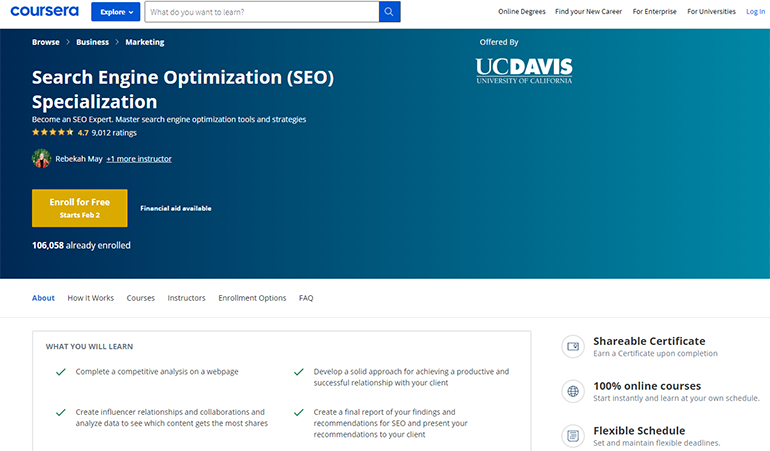
3. SEO Books
Some aspects of SEO theory and fundamentals are evergreen and don't tend to change whereas other aspects especially around changes to Google's algorithm, core updates and search technologies are constantly in flux. For the more theoretical areas, SEO Books can be a good place to start.
If you love learning new skills by reading the theory firs, then you need to check out our guide covering the 15 best SEO Books written by SEO industry experts such as Matthew Capala, Tim Cameron-Kitchen and Julian Goldie.
4. SEO Tools
A great SEO tool for any budding SEO Analyst is SEOptimer. It's one of the most affordable SEO tools on the market and comes packed with the kind of features that an SEO Analyst needs day-to-day:
- SEO auditing
- SEO crawler
- Keyword Tracking
- Keyword Research
- Bulk analysis tools
Career Progression for SEO Analysts
If you're thinking about a transition to an SEO Analyst role you're probably also thinking about this question: is this a good career choice? The only person that can truly answer that is you. If you embark on this new role and quickly become passionate about learning more, then it's clearly a good career choice for you. The deeper you dive, the more validation you have that it's a good fit.
That aspect aside, there are some other objective reasons why an SEO Analyst role might be perfect for you too:
Global demand + skills shortage
There is a well-documented and evidenced skills shortage across the whole spectrum of digital marketing. According to this Marketing Week study, data analytics is the 3rd highest in-demand marketing skill in 2021.
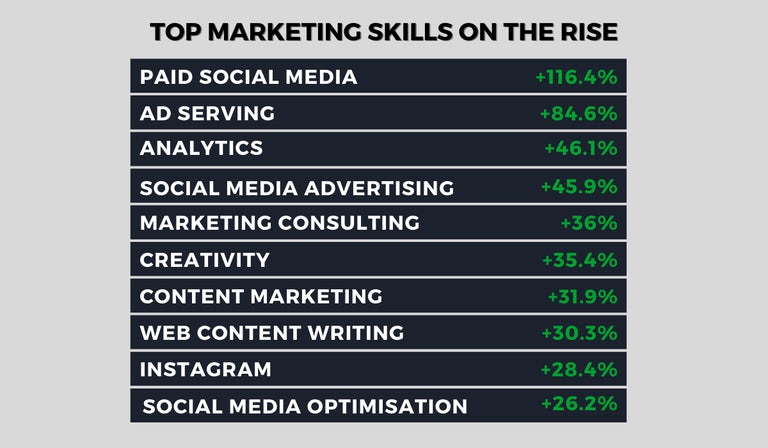
In fact, demand is highest particularly among more senior positions, further driving senior & management salaries higher. This is also exacerbated by increasing digital activity, accelerated e-commerce take-up and more consumer behavior moving online. With all this activity, comes the need for more digital marketing skillsets.
But why? The business case for hiring an SEO Analyst is ultimately to increase organic website traffic. More traffic = more opportunities to convert. For this reason, SEO Analysts are closely connected to business ROI (return on investment) making them a very important member of any marketing team.
The success of the SEO Analyst in discovering actionable insights & implementing data-led strategy can help an organization reduce its reliance on PPC or other paid advertising activities.
Clear career pathway
This article is about salaries after all, but don't be dismayed if your first SEO Analyst job offer is below the average in this guide. Remember that SEO Analysts are typically entry-level, so your salary can only go up from here. You can see how high SEO salaries can scale in our full guide covering all SEO Salaries. The career pathway for an SEO Analyst is to move up into an SEO Specialist or SEO Manager role, then on to a senior role such as SEO Director or Head of SEO role where salaries can be easily double an SEO Analyst salary.
Ever-evolving dynamic role
Google make constant updates to their search algorithm. User behavior is also constantly changing as we use more advanced devices each year. The role is no doubt getting more and more challenging. Mile Živković, SEO Analyst at GetVoIP.com agrees. He thinks creating content for content sake is no longer enough to rank.
"The competition is fierce and you have to constantly outperform competitors as well as stay up to date with the latest algorithm changes."
The way we work, live and commute has also undergone huge changes recently. All of these factors combined make for a challenging and exciting task of staying ahead of the curve. Deciphering and leveraging the underlying data to inform future SEO strategy is a key responsibility for an SEO Analyst.
